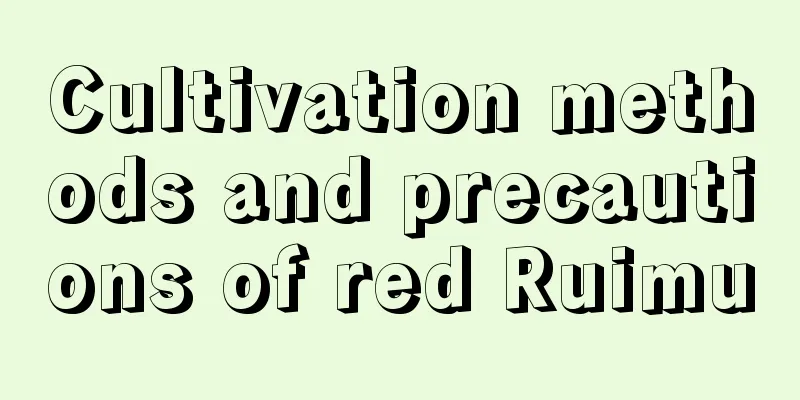What fertilizer is best for figs?

|
Fig is not only an ornamental plant for its elegant tree shape and beautiful flowers, but its fruit is also a versatile food ingredient that can be eaten directly or processed into juice, jam, preserved fruit and other foods. It has a high edible value. In addition, figs have medicinal value and can be used in the medical field. In recent years, figs have been grown in many places in our country. So what fertilizer is best for figs? 1. Base fertilizer The base fertilizer for figs is mainly organic fertilizer , supplemented by an appropriate amount of chemical fertilizer, such as nitrogen, phosphorus and potassium triple compound fertilizer . Such a fertilizer combination can provide long-lasting nutrition for the plants, maintain tree vigor, enhance immunity, and promote high yield and quality. The best time to apply basal fertilizer is from late February to early March, followed by November to December. When applying fertilizer, the trenching method is adopted, the trench depth is about 35 to 45 centimeters, and the amount of fertilizer applied per mu is about 600 kilograms. 2. Topdressing Top dressing of figs should be carried out in multiple times according to soil fertility and plant growth conditions. If the soil fertility is insufficient, multiple topdressing may be required; under normal circumstances, three to four times will be enough. When the plant grows poorly, such as yellowing leaves and weak trees, nitrogen fertilizer should be used mainly to promote growth. During the flowering and fruiting period, potassium fertilizer is mainly used to promote fruit development. During the maturity period, compound fertilizer is applied appropriately to maintain plant health and prevent fruit cracking. 3. Fertilizer requirement Figs are not suitable for continuous cropping and require a large amount of fertilizer. Base fertilizer usually accounts for about 25% of the annual fertilizer application, while the amount of topdressing is allocated according to the number of topdressing: the first topdressing accounts for 25% of the total, the second 30%, the third 15%, and the last 5%. Excessive or insufficient fertilization will affect the growth of figs, so fertilization must be carried out scientifically and reasonably. Through the above methods, you can ensure that figs get sufficient nutrition during the growth process, thus achieving healthy growth and a good harvest. Hopefully these fertilization tips will be helpful to growers.
|
<<: What is the best fertilizer for soybeans?
>>: How to grow and water the money tree
Recommend
Cultivation methods and precautions of Mirabilis jalapa
Growth environment Growth habit Mirabilis jalapa ...
Cultivation methods and precautions of hydroponics of white palm
1. The cultivation method of hydroponics of white...
How to grow ferns in summer
Humidity Control We know that ferns like moisture...
Can pig manure be used as flower fertilizer?
Pig manure as flower fertilizer Pig manure can be...
Is Dendrobium candidum a shade-loving or sun-loving plant?
Does Dendrobium officinale prefer shade or sun? D...
Where to plant plums
Plums are grown Generally, plums grow in a relati...
How to grow oil painting flowers until they overflow the pot?
Oil painting flowers generally refer to oil paint...
This flower will become a wall in one year. It is not afraid of formaldehyde and haze. It will turn into oxygen instantly.
Grow a pot of ivy and it will climb 3 meters high...
Can Strelitzia be grown indoors?
1. Can it be raised? The answer is of course yes....
How to make Forsythia tea
1. Production method 1. Boil directly It is a tra...
Yamato Kin breeding methods and precautions
Watering method Perhaps it is because Yamato Nish...
How to plant figs? Suitable planting methods for fig cuttings
There are many ways to plant figs, including cutt...
How to prune purple bamboo plum in winter
1. Winter pruning method 1. Purple bamboo plum gr...
What is the best fertilizer for cabbage?
Cabbage fertilization time Cabbage needs to be fe...
How to plant water grass seeds
1. How to plant Spread 1 to 2 cm of aquatic plant...









